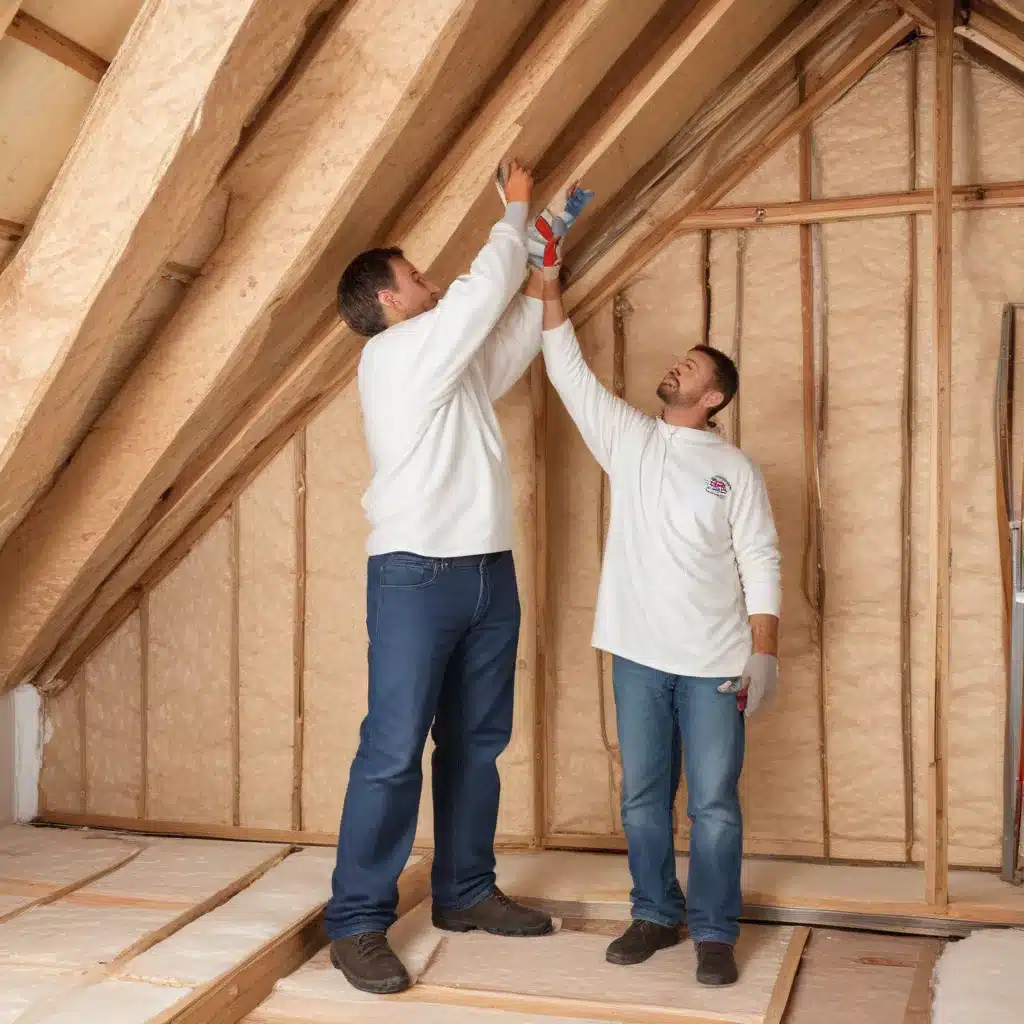
As an experienced home improvement consultant for Reluctant Renovator, I’ve seen firsthand the transformative power of sustainable insulation upgrades. Whether you’re looking to improve your home’s energy efficiency, create a more comfortable living environment, or reduce your environmental impact, strategic insulation investments can deliver remarkable results.
The Benefits of Sustainable Insulation Upgrades
Improved Energy Efficiency: Proper insulation is one of the most effective ways to enhance a home’s overall energy performance. By effectively trapping heat in the winter and keeping it out in the summer, insulation can significantly reduce your reliance on energy-intensive heating and cooling systems. This, in turn, leads to lower utility bills and a smaller carbon footprint.
Enhanced Temperature Regulation: Insulation plays a crucial role in maintaining a consistent, comfortable temperature throughout your home. By minimizing air leaks and thermal transfer, insulation helps regulate indoor temperatures, preventing hot and cold spots and creating a more livable environment for you and your family.
Reduced Environmental Impact: Sustainable insulation materials, such as those made from natural fibers or recycled content, not only improve energy efficiency but also have a lower environmental impact compared to traditional insulation. This aligns with the growing demand for eco-friendly home improvement solutions among conscientious homeowners.
Insulation Materials for Year-Round Comfort
When it comes to insulation, there is no one-size-fits-all solution. The best choice for your home will depend on factors such as the climate, your budget, and your specific renovation goals. Here are some of the most popular and sustainable insulation materials to consider:
Natural Fiber Insulation
Natural fiber insulation, derived from materials like cotton, wool, or cellulose, offers a range of benefits. These insulation types are often made from recycled or renewable sources, making them a more environmentally friendly option. They also excel at providing excellent thermal and acoustic performance, helping to keep your home comfortable and quiet.
Rigid Foam Insulation
Rigid foam insulation, such as expanded polystyrene (EPS) or extruded polystyrene (XPS), is a highly effective insulation solution, especially for exterior walls and roofing. These materials boast impressive R-values (a measure of thermal resistance), meaning they can provide superior thermal protection with a relatively thin profile. Rigid foam insulation is also moisture-resistant, making it a suitable choice for damp or humid environments.
Spray Foam Insulation
Spray foam insulation is a versatile solution that can be applied to a wide range of surfaces, including attics, walls, and crawl spaces. This insulation type expands to fill cracks and crevices, creating an airtight seal that effectively blocks heat transfer and air leaks. Spray foam insulation is known for its high R-values and its ability to enhance the overall structural integrity of a building.
Cost-Saving Opportunities with Insulation Upgrades
Investing in sustainable insulation upgrades can yield significant long-term cost savings, both in terms of energy bills and potential tax incentives or rebates.
Long-Term Energy Savings
By reducing your home’s energy consumption, properly installed insulation can lead to substantial savings on your monthly utility bills. According to the U.S. Department of Energy, weatherizing your home can save an average of $300 annually on utility costs. These savings can add up over time, making your insulation investment a wise financial decision.
Potential Tax Credits and Rebates
Many state and local governments, as well as utility companies, offer incentives and rebates for homeowners who implement energy-efficient upgrades, including insulation. Programs like NYSERDA’s Comfort Home Program in New York provide incentives ranging from $1,600 to $4,000 for qualifying insulation and air sealing projects. Be sure to research the available options in your area to maximize your potential savings.
Increased Home Value
Improving your home’s energy efficiency through insulation upgrades can also increase its market value. According to the U.S. Department of Energy, insulation can add up to $1,000 to the value of your home. This boost in value can be especially beneficial if you plan to sell your property in the future.
Maintaining Insulation Effectiveness
To ensure your insulation upgrades continue to provide optimal performance and comfort, it’s essential to address a few key considerations.
Proper Installation Techniques
Proper installation is crucial for the long-term effectiveness of your insulation. Be sure to work with experienced contractors or, if you’re tackling a DIY project, follow the manufacturer’s instructions carefully. Improper installation can lead to gaps, voids, or compression, which can significantly reduce the insulation’s efficiency.
Addressing Air Leaks
In addition to insulation, addressing air leaks throughout your home is essential for maximizing energy savings and comfort. Air sealing measures, such as caulking, weatherstripping, and ductwork sealing, can work in tandem with insulation to create a tighter, more efficient building envelope.
Routine Inspections and Maintenance
Regular inspections and maintenance can help maintain the effectiveness of your insulation over time. This may include checking for any signs of damage, moisture intrusion, or degradation, and addressing any issues promptly. Staying proactive with insulation maintenance can extend its lifespan and ensure your home continues to benefit from improved energy efficiency and comfort.
By exploring the benefits of sustainable insulation upgrades, understanding the various material options, and implementing best practices for installation and maintenance, you can transform your home into a more comfortable, energy-efficient, and environmentally friendly space. To learn more about insulation and other home improvement solutions, be sure to visit Reluctant Renovator, where you’ll find a wealth of resources and expert guidance to help you on your renovation journey.



